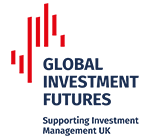
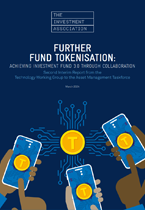
Further Fund Tokenisation: Achieving Investment Fund 3.0 Through Collaboration March 2024
This Further Fund Tokenisation report from the Technology Working Group of the Asset Management Taskforce outlines the next steps for tokenisation within the UK funds industry.
The era of 'Investment Fund 3.0' can only be fully achieved through industry collaboration and progressing the identified use cases.
Through close engagement with HM Treasury and the FCA, the Group has shown where funds are able to complement the developments in capital markets digital assets more broadly.
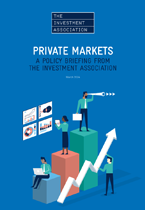
Operational Resilience: Severe but plausible scenarios March 2024
The IA has published a new guide, Operational Resilience: Severe but plausible scenarios, to explore how firms can effectively calibrate their operational resilience scenario testing. The guide represents the output of the IA Severe but Plausible Working Group which was convened in 2023 to identify best practice and provide baseline information that firms can use as a starting point to calibrate ‘severe but plausible scenarios’ appropriate for their own business, accompanied by supporting guidance. It builds on the IA’s earlier operational resilience guidance on governance, important business services, impact tolerances, scenario testing, self-assessments and third party providers.

Operational Resilience: Severe but plausible scenarios March 2024
The IA has published a new guide, Operational Resilience: Severe but plausible scenarios, to explore how firms can effectively calibrate their operational resilience scenario testing. The guide represents the output of the IA Severe but Plausible Working Group which was convened in 2023 to identify best practice and provide baseline information that firms can use as a starting point to calibrate ‘severe but plausible scenarios’ appropriate for their own business, accompanied by supporting guidance. It builds on the IA’s earlier operational resilience guidance on governance, important business services, impact tolerances, scenario testing, self-assessments and third party providers.
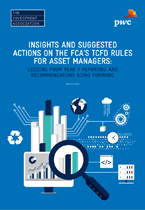
Insights and Suggested Actions on the FCA’S TCFD Rules For Asset Managers: Lessons From Year 1 Reporting and Recommendations Going Forward March 2024
The IA, in collaboration with PwC, has produced a review of the first round of asset management disclosures against the FCA's rules on climate-related disclosure in line with TCFD. The report can be found here. The report looks at entity, product, and on-demand reporting, across a selection of asset managers who reported for the first time in 2023 against the FCA's requirements. As well as outlining some of the key challenges faced by asset managers in implementing the FCA's rules, the report also sets out a list of 10 key areas for asset managers to consider in their reporting going forward.
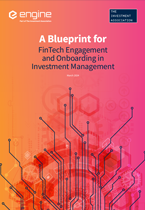
A Blueprint for FinTech Engagement and Onboarding in Investment Management March 2024
This report, published by the Investment Association’s FinTech hub, Engine, analyses the current approach to FinTech engagement and onboarding within the investment management industry and provides a blueprint for investment managers and FinTechs to improve their processes and approach to working with one another.
The paper begins by providing an overview and analysis of the FinTech ecosystem and subsequently splits into two parts, part one of the paper provides insights for investment managers, and covers topics such as the changing needs of the end of investor and the need to digitise, the considerations and steps firms can take to benchmark and improve their internal processes for FinTech interaction and onboarding, and thirdly best practice around FinTech scouting and assessing solution suitability. Part two of the paper provides insights for FinTechs on the steps to prepare and scope procurement and onboarding requirements to help them save time, money and hassle when selling their solution to investment managers. This guide is more than a resource; it is a blueprint for navigating the future of investment management and FinTech innovation. Click here to view the paper.
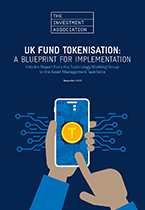
UK Fund Tokenisation: A Blueprint for Implementation 2023
This report from the Technology Working Group of the Asset Management Taskforce outlines an implementation plan for the tokenisation of the UK investment funds industry whose full value chain is operated on DLT.
A baseline – or ‘stage one’ – model is now available, which means the IA's 'Investment Fund 3.0' era has now arrived.
Through close engagement with HM Treasury and the FCA, the Group has secured the green light for this baseline model and work continues to progress to more advanced stages over time.
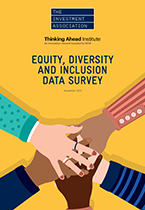
Equity, Diversity and Inclusion Data Survey 2023
The IA has launched the Equity, Diversity and Inclusion Data report. This is a new report which provides, for the first time ever, a detailed overview of the demographic makeup of the UK investment management industry as well as information on the breadth of initiatives, processes and policies being implemented by member firms to promote inclusive workplaces and to attract and retain diverse talent. The report summarises the findings and creates a central resource of good practice, including key findings on diversity data collection, industry demographics, recruitment, progression, culture and accountability.
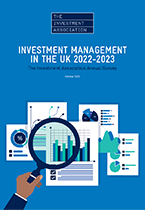
Investment Management in the UK 2022-2023
The survey is The Investment Association's (IA) flagship report, providing a comprehensive overview of investment management activity undertaken by IA members on behalf of domestic and overseas clients. Please click here to download the report.

The Role of a Chief Technology Officer in Supporting the Firm's ESG Journey
The Investment Association, in collaboration with KPMG, has launched a new report on the role of a chief technology officer in supporting a firms ESG journey. The report outlines the many ways a CTO can champion the firm's path to a sustainable future, including by putting in place the right technologies and systems; meeting the ESG data challenge in step by step way; and investing in building new skills, People and Talent across the organisation.
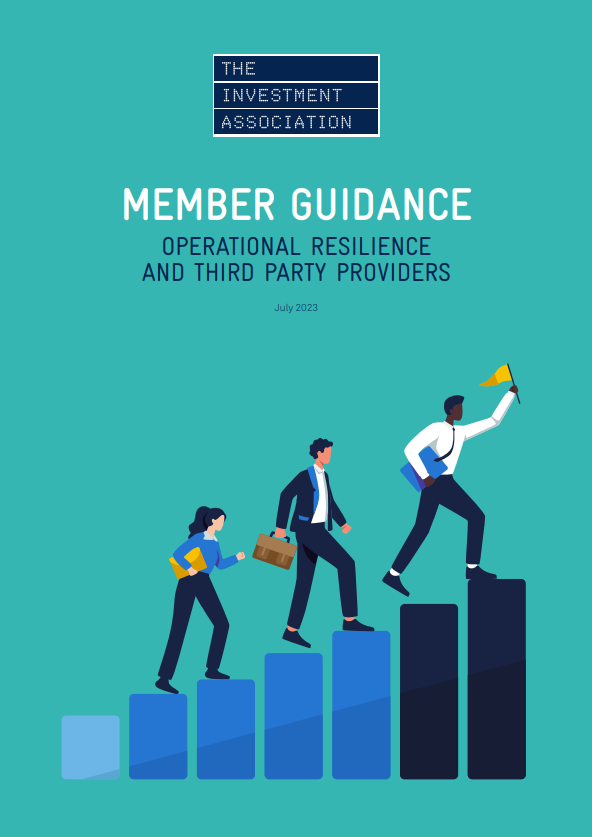
Operational Resilience and Third Party Providers
The IA has published a new report, Operational Resilience and Third Party Providers, to provide firms in the investment management sector with a practical framework with which to guide their interactions with third parties around resilience. The report represents the output of the IA Third Parties Working Group which was convened in 2022 to examine firms’ obligations in relation to third party service provision and outsourcing in the context of the UK Operational Resilience Rules. It builds on the IA’s earlier operational resilience guidance on governance, important business services, impact tolerances, scenario testing and self-assessments.
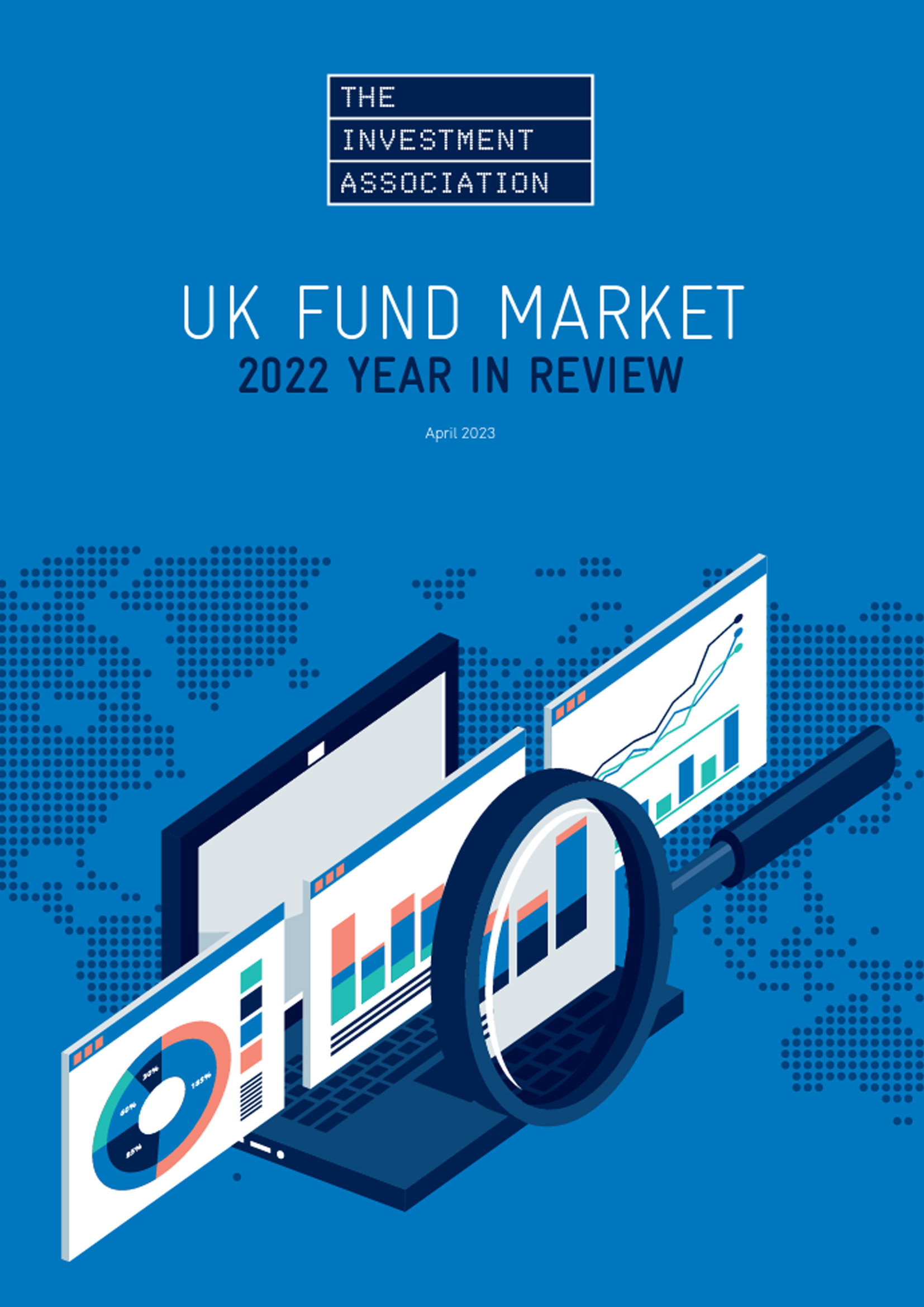
The UK Fund Market 2022 Year in Review
The IA has launched the UK Fund Market - 2022 Year in Review report. This is a new report examining trends in UK investor FUM and net retail fund sales through 2022. In a challenging year for performance, FUM fell by 14% over the year and retail investors withdrew £25.7 billion from fund, the first annual outflow recorded in IA data. The Year in Review report explores these trends in some detail, paying particular attention to sales by asset class and covers responsible investing and sales to active and indexing funds. It looks at how UK retail investors respond to the changing investment environment and market volatility through 2022. The report also analyses the UK's experience in the context of fund flows in the US, Europe and Asia.

Governance and Disclosure Guidelines for Housing Associations Seeking Capital Markets Funding
The IA has published its updated Governance and Disclosure Guidelines for Housing Associations Seeking Capital Markets Funding, building on the guidance originally published in 2017. In recent years Housing Associations have increasingly turned to the debt capital markets to meet their long-term funding needs. This guidance sets out investor expectations on certain disclosures for Housing Associations seeking funding from capital markets, including evolving expectations with regard to environmental, social and governance (ESG) reporting.
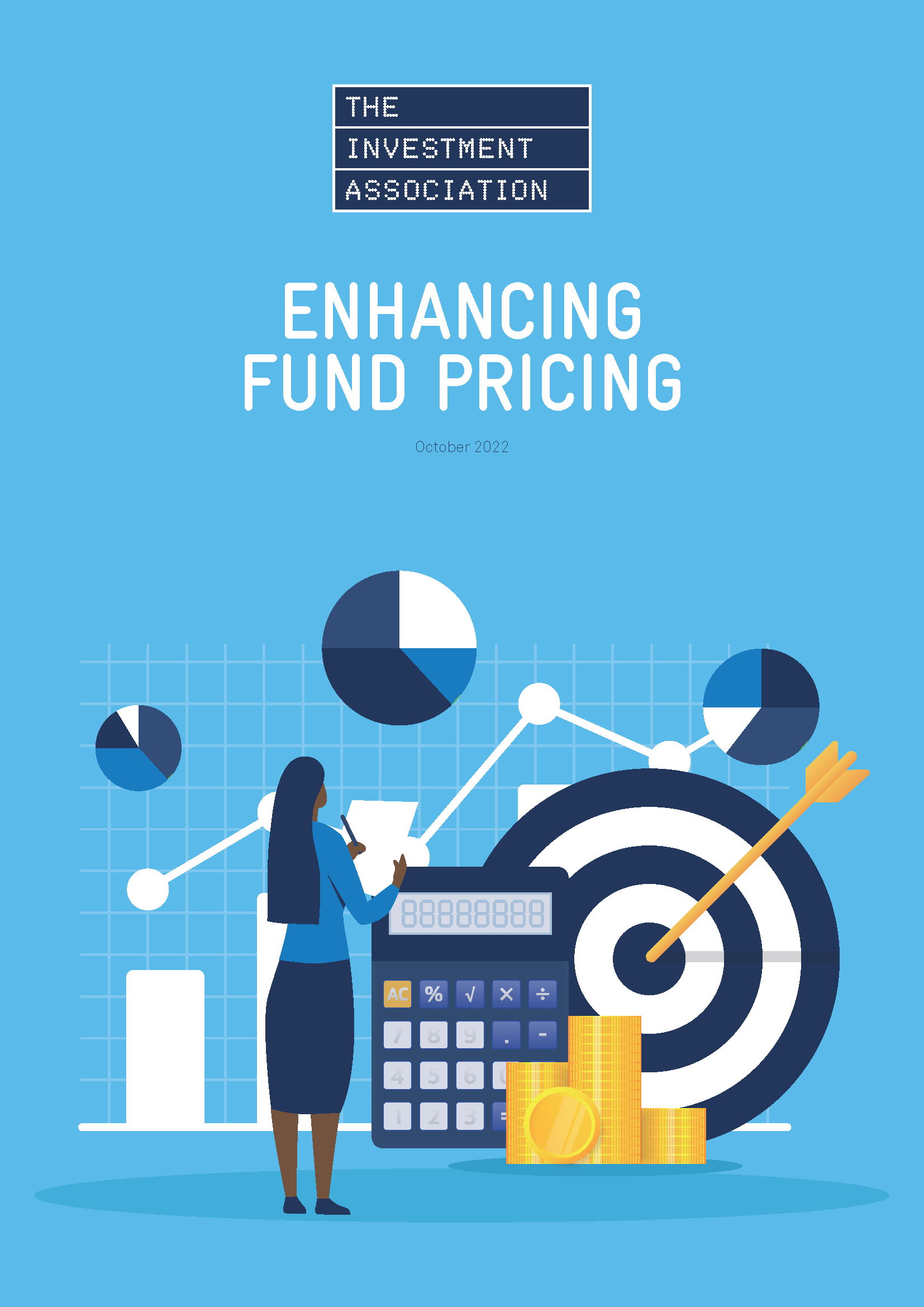
Enhancing Fund Pricing
The IA has published a new paper Enhancing Fund Pricing building on the swing pricing aspects of the Bank and FCA work on the vulnerabilities associated with the liquidity mismatch in open-ended funds during 2020. Our view is that swing pricing is a valuable tool to ensure the fair treatment of all unit holders in investment funds and can help to reduce any first-mover advantage that may arise specifically from fund pricing. However, we make a key distinction between behaviour that may be motivated by fund pricing and the redemption response that is driven by conditions in capital markets themselves, which we see as a central driver of outflows in March 2020.

Investing for the Future: Three Potential Paths for a Tech-Powered UK Fund Industry
For over 150 years, collective investment schemes have provided millions of people in the UK and across the world with diversified access to global markets, helping them to save effectively and productively for the future. As technology and investor behaviour evolve, this paper explores where the investment funds industry may head next. Will the fund continue its incremental adaptation to the challenges and opportunities of today’s world? Will a more innovative evolution take place to connect better with customers? Or, alternatively, will it transform into a different kind of product altogether?
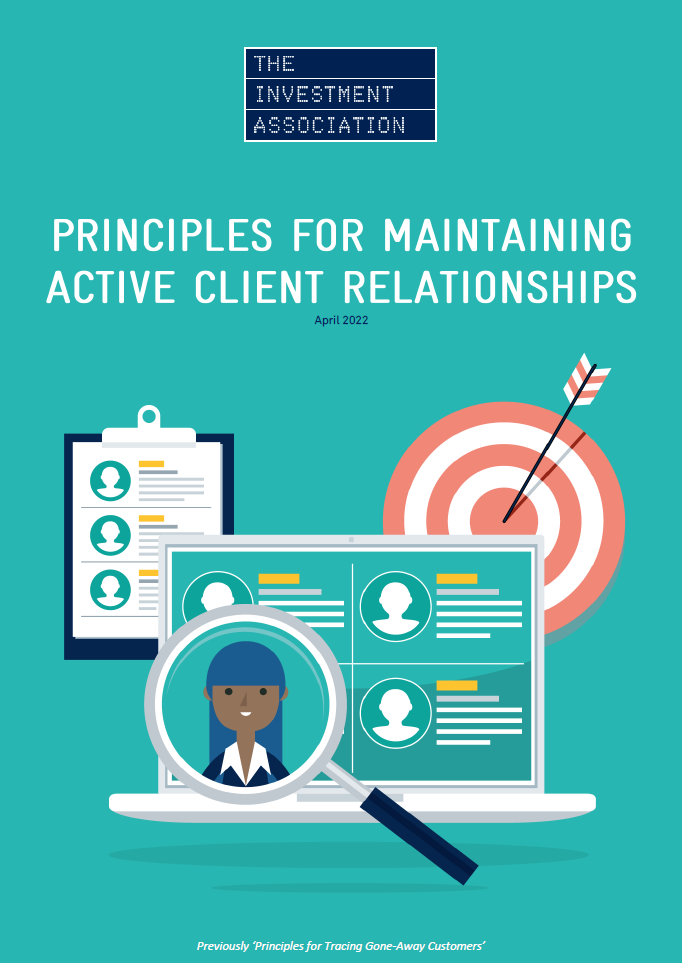
Principles for Maintaining Active Client Relationships
Previously titled ‘Principles for Tracing Gone-Away Customers', the updated version sets out some key Principles to aid members to maintain the currency of their client contact details. The document covers considerations that firms with direct retail consumers may wish to look into to prevent accounts becoming dormant.
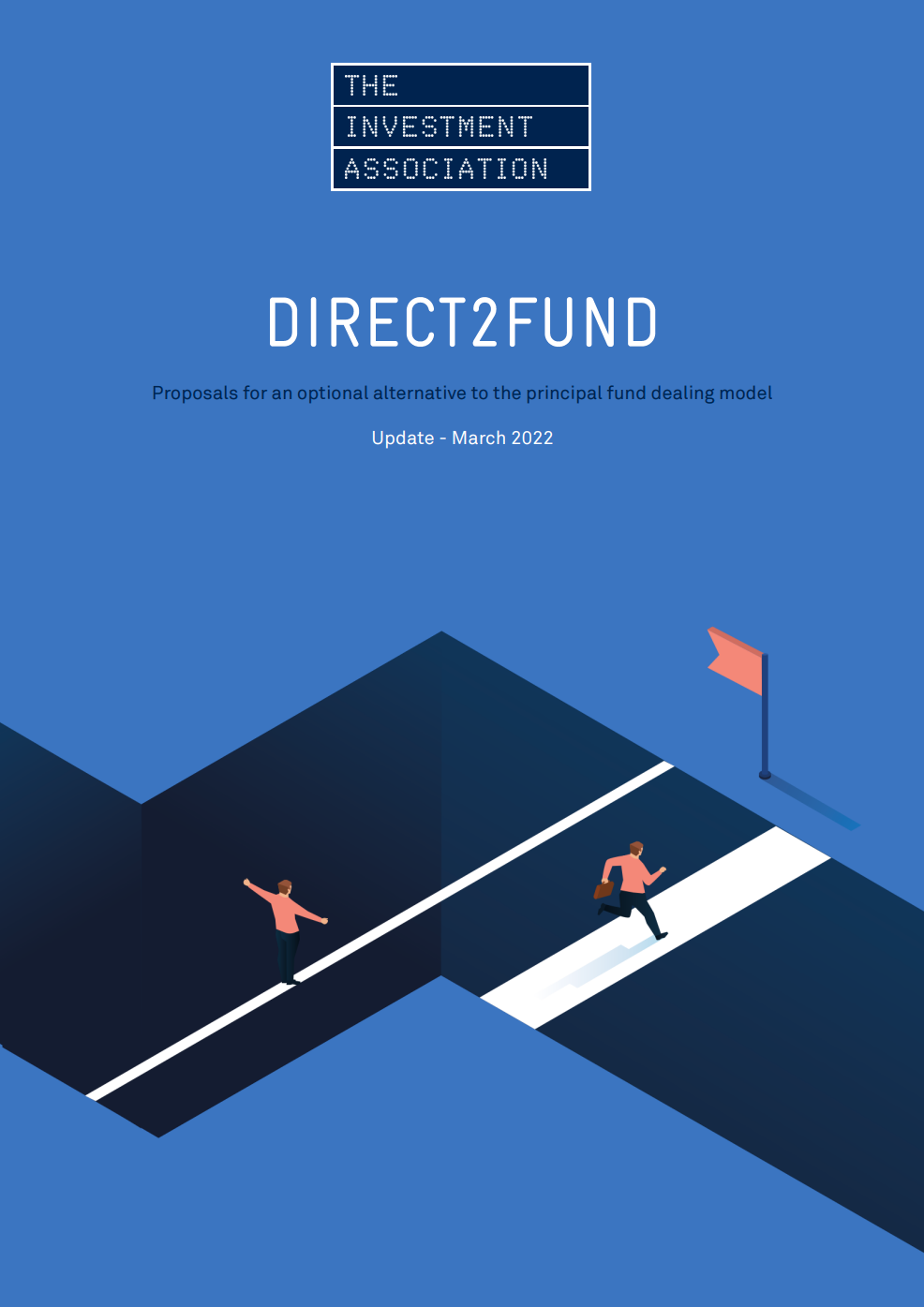
Direct2Fund
An update on the IA's proposals for a revised dealing model for UK funds.
Direct2Fund ('D2F') is the optional investor-fund dealing model positioned as the alternative to the UK's traditional model in place today.
D2F facilitates investors transacting directly with their desired investment fund, bypassing the Authorised Fund Manager (AFM). The AFM has traditionally acted as a counterparty between investors and the funds they offer.
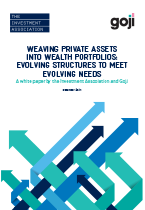
Weaving Private Assets Into Wealth Portfolios: Evolving Structures To Meet Evolving Needs
This joint White Paper with Goji explores interest among private wealth managers in making allocations to private assets in wealth portfolios. Based on a survey of private wealth managers of varying sizes, it finds almost 80% of wealth managers who responded to this survey already invest in private assets on behalf of their clients, allocating, on average, around 5% of their total assets under management (AuM). Although the research was conducted before the final LTAF rules came into force, around one in three firms was likely to consider investing in an LTAF over the next three years. The research explores some of the hurdles raised by private wealth managers to investing in private assets, including concerns over mismatch between the liquidity profile of private assets and client expectations of liquidity, availability of appropriate fund vehicles, higher costs and the restrictions on marketing Non-mainstream Pooled Investments (NMPIs) to private wealth clients.
Click here to download paper.
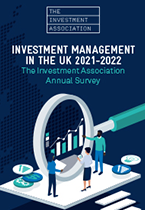
Investment Management in the UK 2021-2022
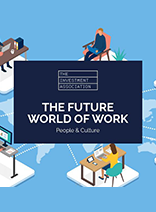
The IA Future World of Work
The IA has launched its landmark Future World of Work project. This project was born out of the recognition that members' focus has increasingly been drawn away from solely looking to the here and now, and onto what the future of work will look like. To support the industry in doing so, the IA commissioned a series of thought leadership pieces, written by subject matter experts from within and outside the industry, supplemented by a number of member case studies. These seek to support internal discussions and help each firm to determine their own optimal approach by providing non-prescriptive thought leadership on three key areas: The Office of the Future; Working Patterns; and Skills & Behaviours. Importantly, these are underpinned by diversity and inclusion considerations and the future regulatory environment.
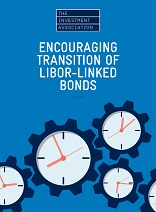
Encouraging Transition of LIBOR-Linked Bonds
The IA has published a paper on 'Encouraging Transition of LIBOR-linked Bonds'.
From the end of 2021 LIBOR will be phased out by jurisdictions around the world. However there remain a large number of outstanding LIBOR-referencing bonds which have not yet transitioned to a new rate. This paper highlights the role played by the buy-side in encouraging transition, provides a guide to issuers looking to transition their bonds via consent solicitation, and makes recommendations as to the potential steps other market participants can take to help ensure an effective and timely transition.
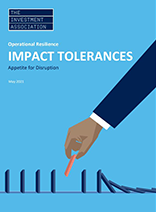
Impact Tolerances: Appetite for Disruption
This publication relates to the incoming FCA requirements on operational resilience, entitled Impact Tolerances: Appetite for Disruption. This represents the output of our Impact Tolerances Working Group, assisted by PwC, and is intended to offer considerations for members as they set impact tolerances for their important business services. It highlights the regulatory landscape, a proposed methodology firms can adapt to their own business models, a discussion of associated challenges highlighted by working members as well as an approach to writing impact tolerance statements.
Cyber Resilience Board Engagement & Governance
We have published two publications relating to cyber security and are updates to existing IA guidance. Effective board engagement with cyber security remains crucial to building resilience, a fact also recognised by the regulators. To aid members in this field, our first report updates our previous guidance on Board Engagement and Governance, offering considerations to help boards and management to improve their understanding and management of cyber risks. In conjunction we have also published a supplementary Resource Overview highlighting additional readily available guidance for boards which members can refer to when considering cyber risk.
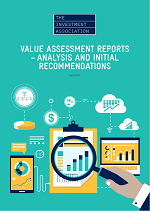
Value Assessment Reports
The IA has undertaken an analysis of the assessment of value reports issued in 2020. The analysis considered a sample of assessment of value reports issued by Authorised Fund Managers (AFMs) representing around 71% of UK funds by assets under management. The report covers general findings and those related to specific criteria, and makes some initial recommendations for AFMs to consider when preparing future assessment of value reports. Download
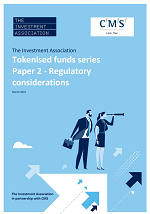
Tokenised fund series
The IA has launched our dedicated workstream looking at the tokenisation of funds. As part of our work on digital assets it appears that tokenised funds will become a reality within the UK market in the medium term; in order to support members looking to utilise this, the IA has published a number of resources on how they can be used to provide a superior experience for investors, good practice and standard-setting guides.
All of these can be found on our dedicated tokenised funds page.
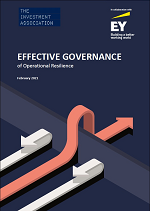
Effective Governance of Operational Resilience
The IA, in collaboration with EY, have issued the next paper in our Operational Resilience series looking at how firms can effectively govern their operational resilience strategy. The paper aims to set out the regulatory expectations in this area, provide members with a series of principles by which to structure their governance framework, address the key challenges firms face in establishing effective governance of operational resilience and offer a series of questions that those with individual and collective responsibility should be considering.
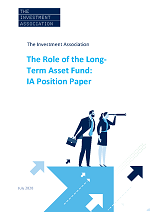
The role of the long term asset fund
Following its original proposal for a Long Term Asset Fund (LTAF) in the UK Fund Regime Working Group report, issued in July 2019, the IA has produced a further position paper, setting out in more detail how the LTAF would work, particularly in respect of the investment powers, the eligible investor market and redemption terms. The paper looks at some examples of comparable structures in other countries and set out some hypothetical case studies of what the LTAF might look like. This paper was initially provided to the FCA, HM Treasury and the Bank of England in July 2020, and is now being publicly released. The IA has also produced a short two page summary explaining the LTAF proposal.
ETF performance during Coronavirus - an analysis
The latest IA research paper on Exchange Traded Funds (ETFs) seeks to explore in detail the performance and resilience of these funds during coronavirus.
Asset Management Taskforce Stewardship Working Group: Investing With Purpose Report
The HM Treasury-led Asset Management Taskforce report – Investing with Purpose: Placing Stewardship at the Heart of Sustainable Growth - provides a blueprint for integrating stewardship into the investment process and seeks to cement the UK as a global centre of excellence in stewardship practice.
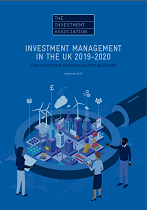
Investment Management in the UK
The survey captures investment management undertaken by members of the Investment Association (IA) on behalf of domestic and overseas clients.
Best Practice for FinTech Engagement: Being a responsible partner and client
The purpose of this guide is to assist in the understanding, onboarding and implementation of FinTech within the Investment and Wealth Management sector. Organisational readiness, advice on FinTech scouting, pitfalls, IP considerations and ultimately best practice for successful engagement between the Investment / Wealth Manager and the FinTech are all discussed in this guide with key takeaways for quick reference.
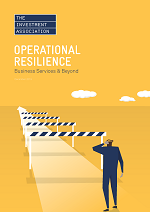
Operational Resilience: Business Services and Beyond
Operational Resilience is a major focus within the industry at present and will continue to define operational risk and business continuity agendas. This publication contains the conclusion of our work on Business Services.
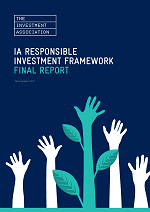
IA Responsible Investment Framework
The investment management industry has come together to agree a common language and clear product categorisation for responsible investment approaches to help savers better access and compare funds with a focus on environmental or social outcomes.
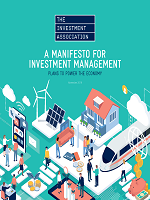
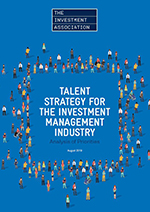
The Investment Association’s Talent Strategy
The report sets out how we will support our members to attract, develop and retain people with the skills, knowledge and competencies the investment management industry needs. It is structured around three key themes: attraction, advancement and environment with considerations around diversity and inclusion underpinning each one.
Full Report: Download
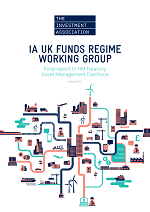
IA UK Funds Regime Working Group: Final report to HM Treasury Asset Management Taskforce
The report details how the new proposed Long-Term Asset Fund will help widen access to more illiquid assets, opening up investment opportunities for a range of customers, particularly those saving in Defined Contribution (DC) pension schemes over many decades. The UK Funds Regime Working Group final report was updated in March 2020 to incorporate a proposal from AREF for a Professional Investor Fund.
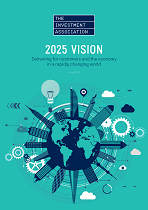
2025 Vision: Delivering for customers and the economy in a rapidly changing world
The ‘2025 Vision’ report, launched at the IA’s flagship annual Policy Conference, outlines three key areas of development.
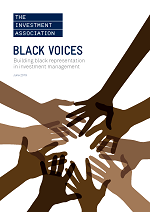
Black Voices: Building black representation in investment management’
A landmark report into the experiences of black professionals working in the investment management industry and black students considering their careers. The report sets out ten key steps firms can take to create more diverse and inclusive workplaces.
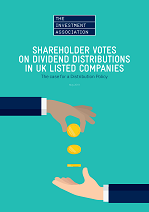
Shareholder votes on dividend distribution in UK listed companies - The case for a Distribution Policy
This report presents findings on the prevalence of listed UK companies paying ordinary dividends without seeking shareholder approval.

Closing the Gap: Addressing the Gender Pay Gap
This inaugural report explores why the gender pay gap exists and how asset managers can help to reduce it.

Stewardship in Practice
The Stewardship Survey outlines the stewardship activities of IA members with respect to UK companies as of 30 June 2018.
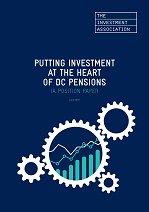
Putting investment at the heart of DC Pensions
This paper examines the investment process in Defined Contribution pensions, considers ways to facilitate efficient asset allocation, and discusses increasing plan contributions and engagement.



